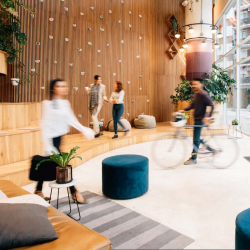To provide the best experiences, we use technologies like cookies to store and/or access device information. Consenting to these technologies will allow us to process data such as browsing behaviour or unique IDs on this site. Not consenting or withdrawing consent, may adversely affect certain features and functions.
The technical storage or access is strictly necessary for the legitimate purpose of enabling the use of a specific service explicitly requested by the subscriber or user, or for the sole purpose of carrying out the transmission of a communication over an electronic communications network.
The technical storage or access is necessary for the legitimate purpose of storing preferences that are not requested by the subscriber or user.
The technical storage or access that is used exclusively for statistical purposes.
The technical storage or access that is used exclusively for anonymous statistical purposes. Without a subpoena, voluntary compliance on the part of your Internet Service Provider, or additional records from a third party, information stored or retrieved for this purpose alone cannot usually be used to identify you.
The technical storage or access is required to create user profiles to send advertising, or to track the user on a website or across several websites for similar marketing purposes.
 At the halfway point of a six-month pilot programme of a four-day week in the United Kingdom, results so far indicate that the idea has been backed by an overwhelming majority of those companies taking part, with many already saying the move will be permanent. A poll found that 88 percent believed the trial was working ‘well’ for their business. Just under half (46 percent) of respondents said their business productivity had ‘maintained around the same level’, while 34 percent said that it had ‘improved slightly’, and 15 percent said it had ‘improved significantly’. (more…)
At the halfway point of a six-month pilot programme of a four-day week in the United Kingdom, results so far indicate that the idea has been backed by an overwhelming majority of those companies taking part, with many already saying the move will be permanent. A poll found that 88 percent believed the trial was working ‘well’ for their business. Just under half (46 percent) of respondents said their business productivity had ‘maintained around the same level’, while 34 percent said that it had ‘improved slightly’, and 15 percent said it had ‘improved significantly’. (more…)



































